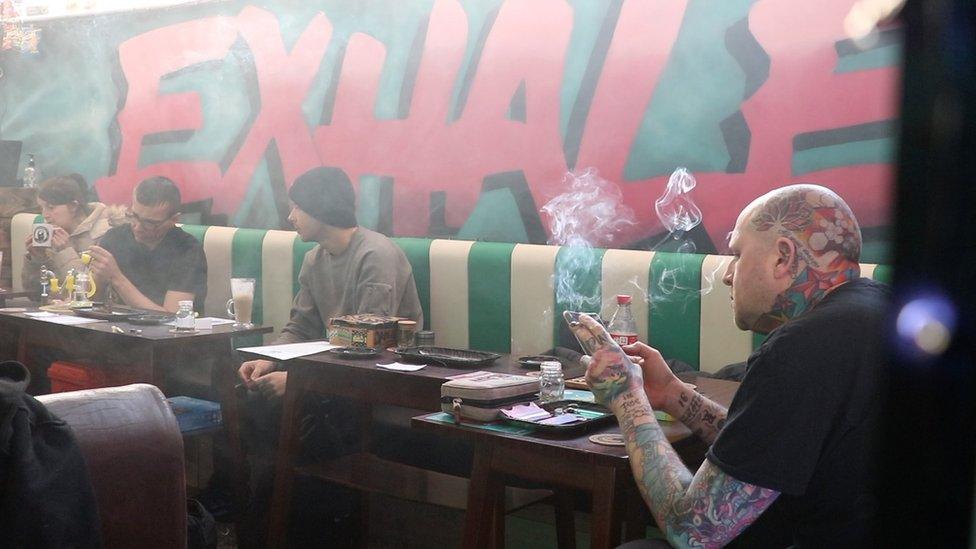Seaham: 'Heroin treatment let me continue recovery journey'
- Published
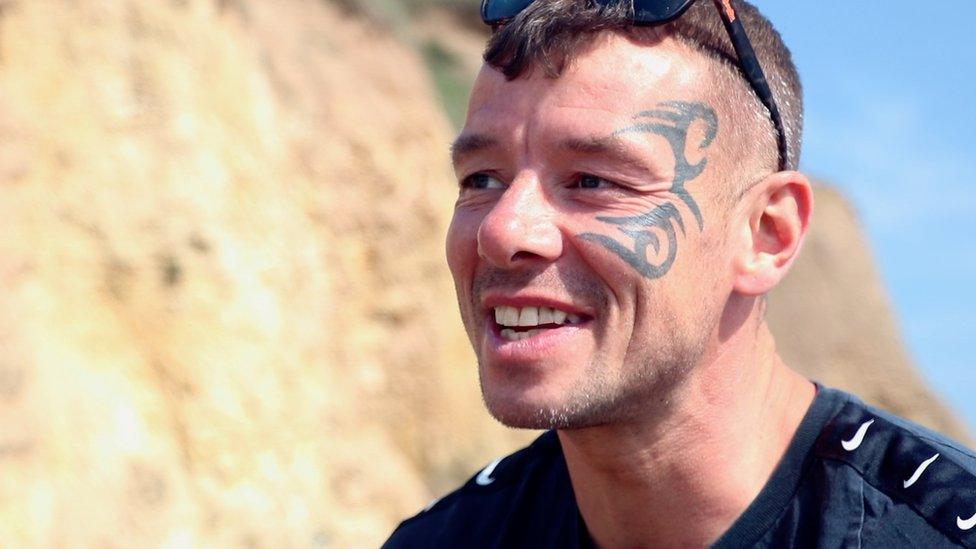
James Fowler relapsed earlier this year but feels "blessed" to be alive and in recovery
When he was 11, James Fowler tried drugs for the first time. By 20, he was using heroin and crack cocaine.
His story from that point is grimly familiar to many struggling with addiction - he became estranged from his family, robbed and begged from people and spent time in prison.
However, in 2019, his story took an unusual turn as he became one of the first and only people in England to receive free medical-grade heroin.
The Middlesbrough clinic, which is now closed due to Police and Crime Commissioner Steve Turner not renewing its funding, helped James stabilise his chaotic life.
He stopped using street drugs and started attending college with ambitions to work towards a psychology degree.
Earlier this year he relapsed, but feels "blessed" to have gone through heroin assisted treatment, which he says has allowed him to stay alive and continue his recovery journey.
"I started drinking again, thinking I could get away with enjoying that life," he said.
"In a very quick time I was left barricaded in my flat, paranoid and smoking crack, wishing death on myself.
"But now, it feels like I've been saved all over again."
James was born in Darlington. Violence and substance abuse surrounded his childhood.
He spent time in Middlesbrough, and recently moved to seaside town Seaham.
"I feel like I was left alone, bringing myself up. I didn't understand what love was," he said.
"I have blamed that stuff a lot but because I'm an addict, I believe I'd have ended up down that path no matter what my childhood was like."
'Living as two people'
It's a beautiful day, about 17C. We're chatting on a sea wall, the sound of waves behind us.
"I've never been abroad, but I imagine it's like this," James said, looking out to sea.
"I love it here. It's peaceful. I come down here probably every day."
He is now a few weeks in to his latest period of sobriety.
He said he had accepted that the road to recovery was one to be taken one day at a time.
There will be ups, and there will be downs, he said.
"It's like I'm constantly living as two people. The way I am now, I'd never rob somebody or even think of smoking crack.
"I cringe when I think about how that was my life."
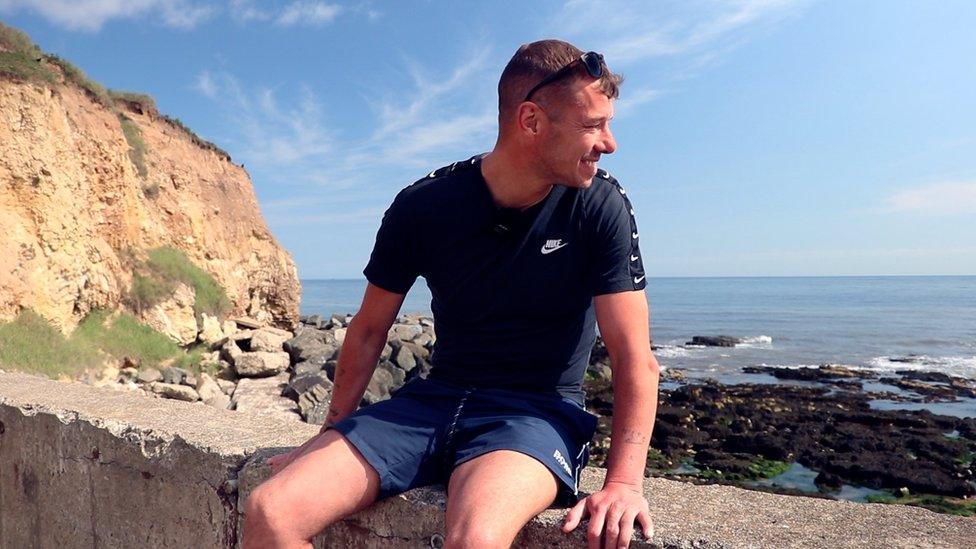
The 42-year-old is now living in Seaham, a place he loves

What is Heroin Assisted Treatment (HAT)?
The treatment, already used in countries such as Canada and Germany, sees patients given daily doses of diamorphine.
Addiction is treated as an illness, and sobriety is not the end goal.
Instead, patients are medically supported, reducing the need for them to commit crime to buy drugs off the street.
Middlesbrough's clinic was the first in England. It opened in 2019 with a handful of patients and closed in 2022 when its funding was not renewed.

In Middlesbrough, it cost £12,000 to put a patient through heroin assisted treatment for a year.
Independent analysis of clinic data concluded that the treatment saw health benefits for patients and a "large reduction in criminal behaviour".
However, Cleveland Police and Crime Commissioner Steve Turner did not renew its funding in 2022, claiming it was "very much a public health initiative" and should not be paid for via his budget.
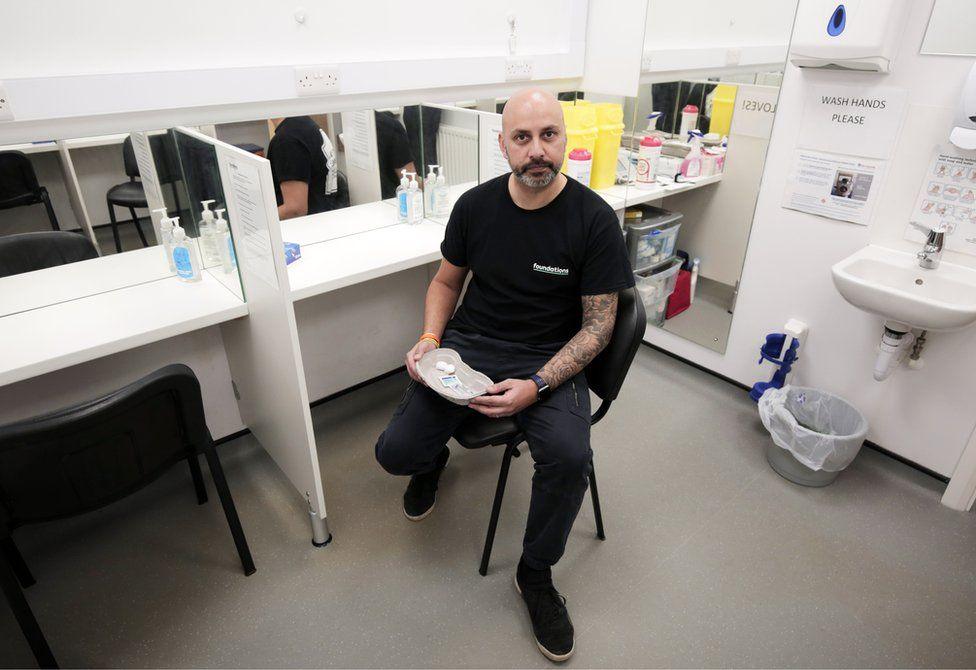
Danny Ahmed, who set up and ran the HAT clinic, said its closure was a "tragedy"
In drug-harm reduction circles, there is a phrase you hear often: "You can't recover if you're dead."
This is something James holds close to his heart.
Relapsing after heroin treatment caused feelings of embarrassment and shame for him, but now sober, he feels "proud" of his progress.
"I wouldn't be here if I didn't have that treatment," he said.
"It got me out of dodgy drugs. I did end up on other drugs and drinking, but it got me in a much better place.
"I owe it my life.
"You have to keep trying, don't give up. This time I feel like I've got it, who knows what will happen in the future, but right now I'm in a good place and I don't want to lose this.
"I try to appreciate every day."
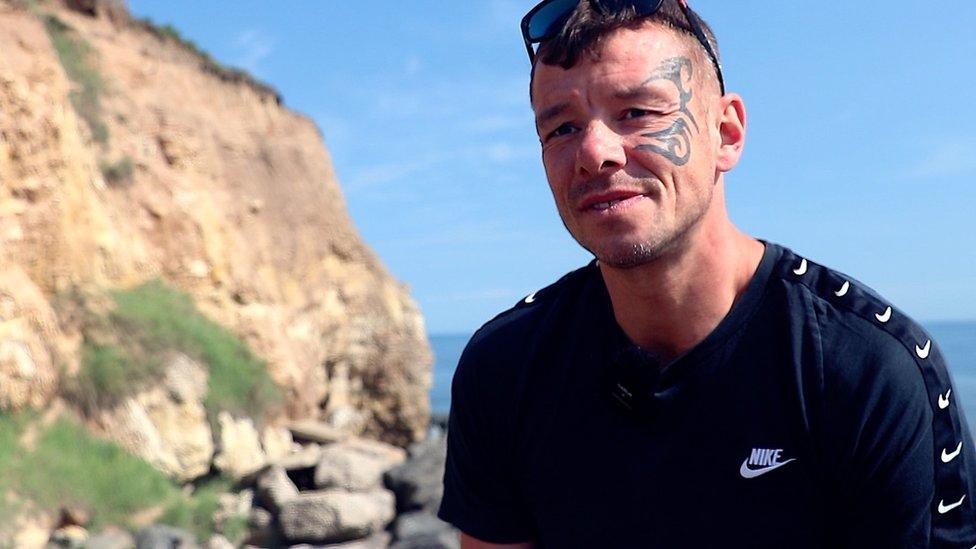
James jokingly refers to getting his face tattoo as being "like the scene in Hangover 2"
During our time together, James talked a lot about his young son.
For the first time, he's been able to work at being a father and build a relationship with him.
When the interview ended, James left to take him out for the afternoon.
He hopes to "stay clean and sober" and eventually get custody.

Follow BBC North East & Cumbria on Twitter, external, Facebook, external and Instagram, external. Send your story ideas to northeastandcumbria@bbc.co.uk, external.
- Published6 December 2022
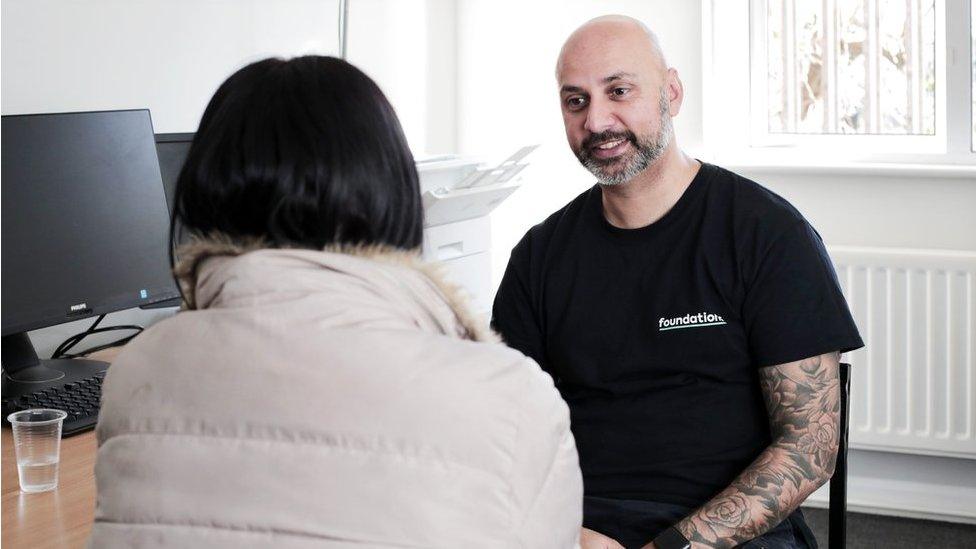
- Published4 February 2023
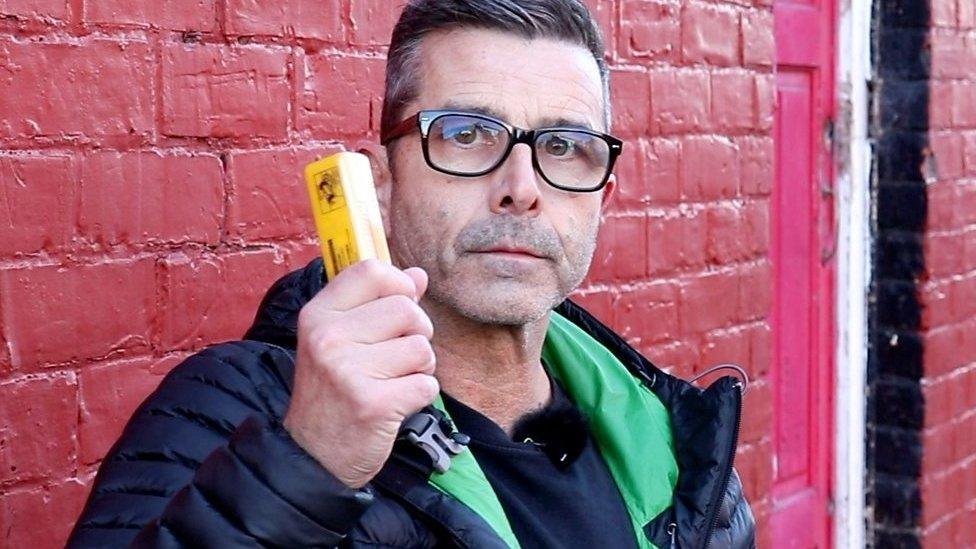
- Published7 March 2023
